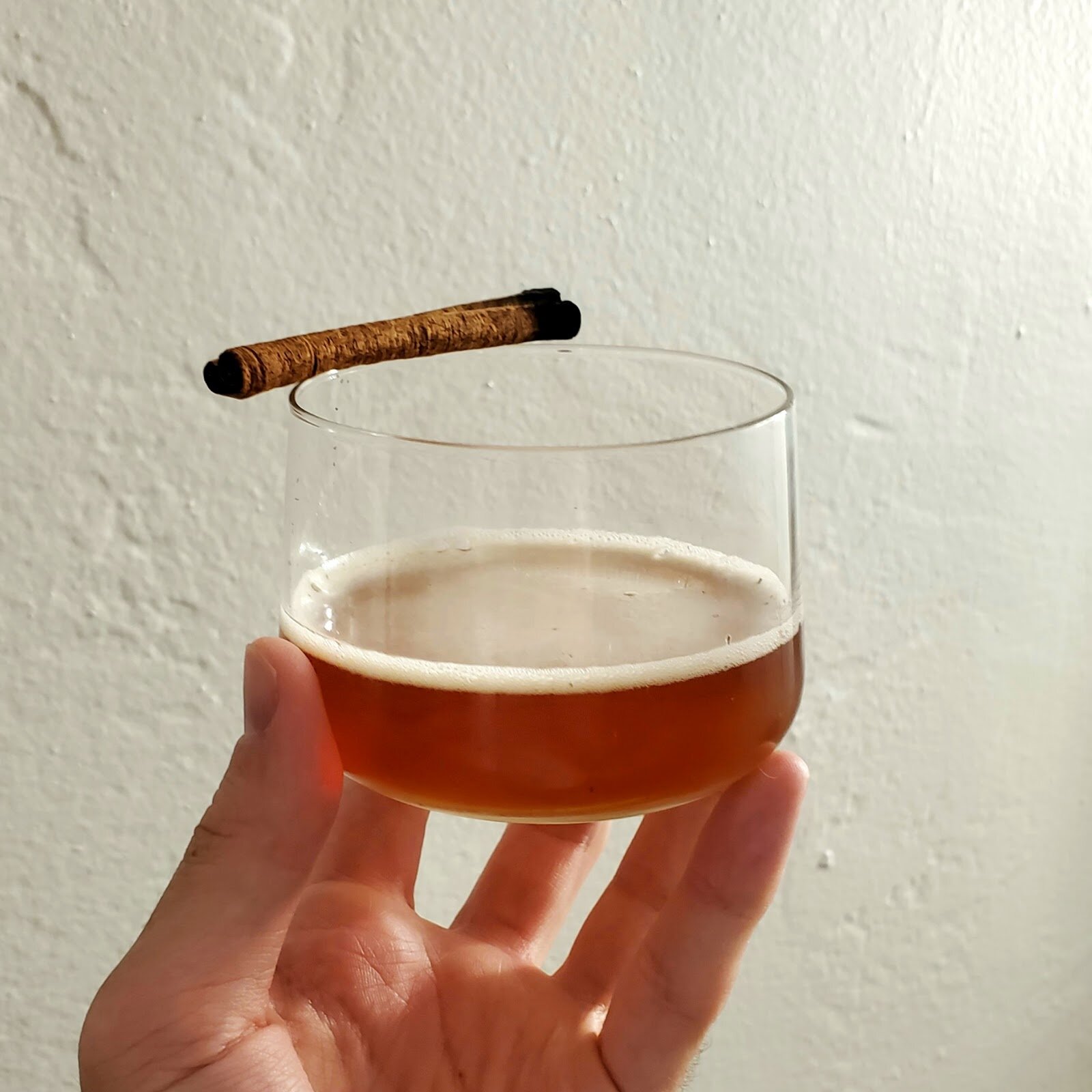Ask The Experts: Kosher Cocktails
We checked in with two experts to explain the ins and outs of mixing kosher cocktails.
The Kashruth can be intimidating, especially when it comes to cocktails. You may know plenty about how the Kashruth applies to the food you eat, but getting into spirits and especially cocktails is a bit more complicated.
Whiskey
Generally speaking most whiskeys should be Kosher, but they aren’t always. They are made from grain, water, and yeast, all of which are pareve, or neutral. The fermenting, cooking, and distilling processes are all permissible as long as the equipment is only used to make whiskey. But things like equipment used to also make brandy, secondary wine casks, being transported in non-Kosher tanker trucks, and a bottling line used to bottle other non-Kosher ingredients are just some of the factors that come into play when determining whether a whiskey is Kosher. And that’s just whiskey - there are plenty of other issues for other spirits, as well.
Mixers
Then when you get into the mixers there is a whole other set of issues to contend with. Looking for Hechshers, or Kosher symbols, on all cocktail ingredients is important. Sometimes there are Kosher-permissible ingredients, particularly the spirits themselves, that don’t have a Hechsher. This is where lists and other resources come in handy. The Chicago Rabbinical Council maintains a liquor list with guidelines and certified brands, updated yearly. This list, found here, is broken down into different categories of spirits, beer, and bar stock items. The Bourbon Rabbi, Rabbi Chaim Litvin, also maintains a list of certified and permissible bourbons, which can be found here. Also on Rabbi Litvin’s website is a button you can use to send him a question about whether something is Kosher on WhatsApp, located in the lower left hand corner.
When in doubt, ask a rabbi
It’s important to consult your local Rabbi when you aren’t sure, as availability of Kosher ingredients as well as interpretations of the Kashruth can vary.
Whether you are a Jewish person who keeps Kosher year-round or a Gentile looking to serve your Jewish friends a Kosher cocktail for the holidays, a little bit of research goes a long way. To that end, we recently caught up with two experts on Kosher cocktails to hammer out some of the finer points of Kosher cocktails.
(And here’s a Kosher Hanukkah cocktail recipe from our own Brian Petro)
Photo courtesy of Rabbi Leibel Khazanovich
Rabbi Leibel Khazanovich
Meet Rabbi Leibel Khazanovich. Rabbi Khazanovich is a Kosher mixologist who posts his creations, along with easy-to-follow recipes, on Instagram @Barshtender. His goal is to help those wishing to make a Kosher cocktail at home do so easily with ingredients they can find at their local stores. He’s also a frequent guest for Kosher cooking podcasts and other events with a program he calls L’Chaim With Leibel.
Are there any cocktail recipes that can be served at any holiday celebration, including Passover
Shabbos poses a number of issues for mixing drinks including but not limited to squeezing fresh lemons, measuring ingredients, and straining. Consult your local Rabbi for more individual details. So the best way to do it is to either have it prepared before shabbos or make sure the cocktail poses no issues. Personally I make Old Fashioneds and Mules by eyeballing ingredients and using bottled lime juice.
Are there any cocktails that can't be served on the Sabbath?
Depending on the holiday, there can be a number of the same issues as shabbos. Passover poses an issue for any grain based alcohol and any other ingredients/dishes that aren't kosher for Passover. Otherwise you're good to go!
Are egg whites (but not the whole egg) Kosher?
Yes! So long as they've been checked to see that there were no blood spots.
What advice do you have for folks just getting into cocktails who want to set up a Kosher bar at home?
For Kosher related questions you have the CRC and the StarK that are great resources. For recipes and technique, YouTube is your best friend. My favorite creators are Cocktail Chemistry, The Educated Barfly, Steve The Bartender, and How To Drink.
Photo courtesy of Dammara Kovnats Hall
Dammara Kovnats Hall
Meet Dammara Kovnats Hall. Kovnats Hall is a Kosher bartender and the Founder & CEO of Jewish Cocktails. She shares cocktail recipes and corresponding teachings about the ingredients from the Torah on Instagram @JewishCocktails, particularly on the importance of knowing where your food comes from. She’s also a primary school teacher and a culinary student.
What are some not-so-obvious common cocktail ingredients that can't be in a Kosher cocktail?
Kosher bitters and vermouths. While there are kosher bitters and vermouths on the market, the selection is extremely limited. Vermouth is problematic because it is a fortified wine and there are strict laws around kosher wine. Classics like a Negroni, Martini and Manhattan all use vermouth. Garnishes can also be problematic for a kosher cocktail. If you are using fruit it must be cut with a kosher knife.
What are some of the easiest Kosher cocktails for folks to make at home?
As long as the ingredients are kosher many cocktails are options. My personal favourites right now are margaritas, sangria, or a gin fizz.
Do you have any advice for Gentiles who want to serve Kosher cocktails to their Jewish friends?
I would recommend asking each person what their personal comfort levels are. There are many different levels of keeping Kosher and it's best to simply ask before making any assumptions.
When it comes to barware and tools, what should people look for or avoid when keeping Kosher?
Part of keeping kosher has to do with separating dishes used for meat and dishes used for dairy. I make cocktails with dairy in them so I like to keep my barware separate. It's hard to have several sets of dishes and cookware in my small Manhattan apartment but I make it work.



